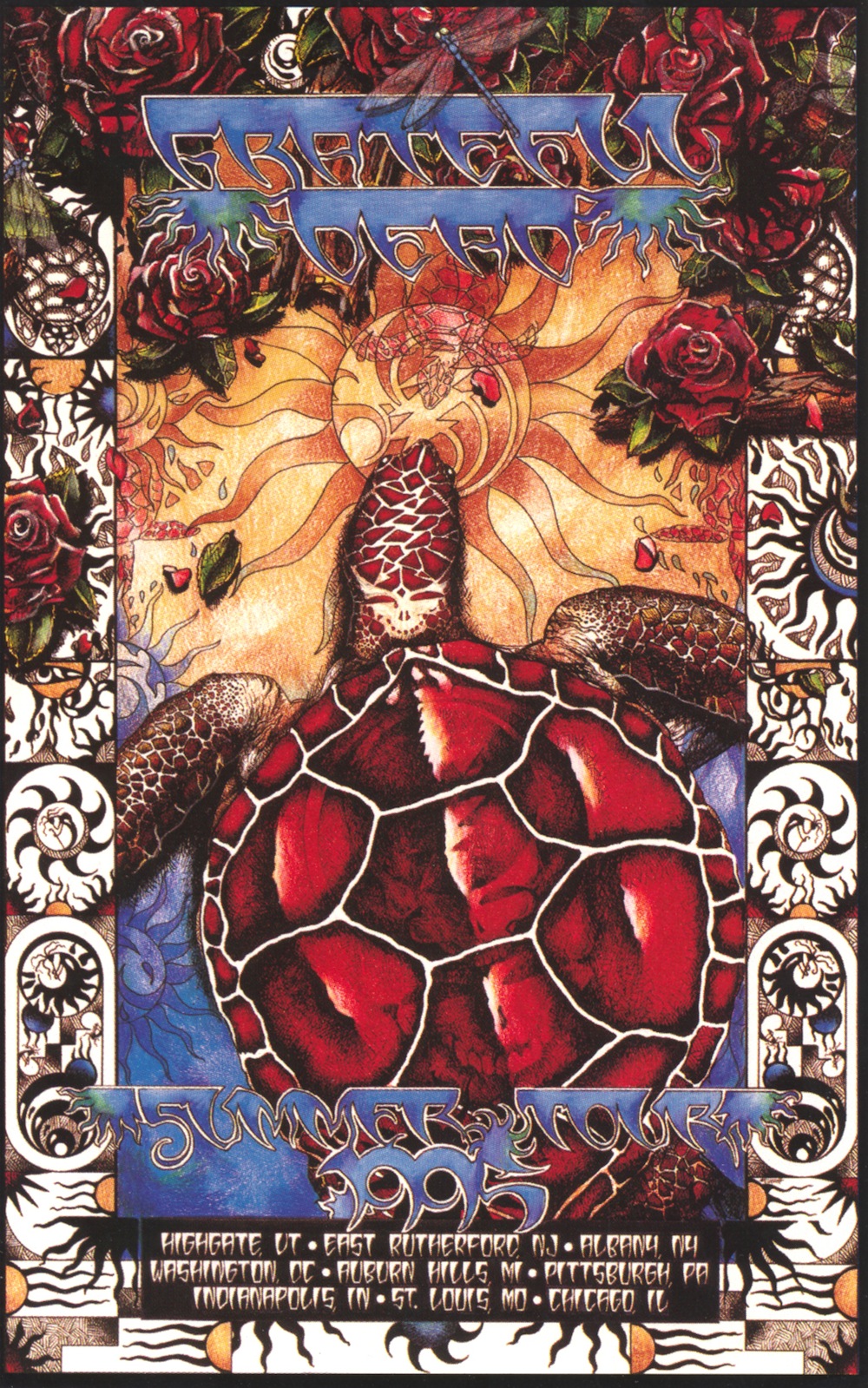Every Grateful Dead Song Annotated in Hypertext: Web Project Reveals the Deep Literary Foundations of the Dead’s Lyrics | Open Culture

If you have any doubt about just how steeped in poetic history the pre-eminent hippie band’s catalog is, see for example the annotated “Terrapin Station,” a song that reaches back to Homer and alludes to Lewis Carroll, William Blake, Plato, and T.S. Eliot. Or, so, at least, say Dodd and his readers, though some of their interpretations may seem a bit tenuous. Hunter himself told Rolling Stone, “people think I have a lot more intention at what I do because it sounds very focused and intentional. Sometimes I just write the next line that occurs to me, and then I stand back and look at it and say, ‘This looks like it works.'” But just because a poet isn’t consciously quoting Homer doesn’t mean he isn’t, especially a poet as densely allusive as Robert Hunter.
Take, for example, “Uncle John’s Band,” which contains the line “Ain’t no time to hate.” One reader, Aaron Bibb, points us toward these lines of Emily Dickinson:
I had no time to Hate— Because The Grave would hinder Me— And Life was not so Ample I Could finish—Enmity—Woven throughout the song are references to American poetry and folk music—from Robert Frost’s “Fire and Ice,” to the Gadsden Flag, to an Appalachian rag. Another of the band’s most popular songs, “Friend of the Devil,” cribs its title and chorus from American folk singer Bill Morrissey’s song “Car and Driver”—and also references Don McLean’s “American Pie.” Drawing as much on the Western literary canon as on the American songbook, Hunter’s writing situates the Dead’s Americana in a tradition stretching over centuries and continents, giving their music depth and complexity few other rock bands can claim.
READMORE:
Every Grateful Dead Song Annotated in Hypertext: Web Project Reveals the Deep Literary Foundations of the Dead’s Lyrics | Open Culture:




































